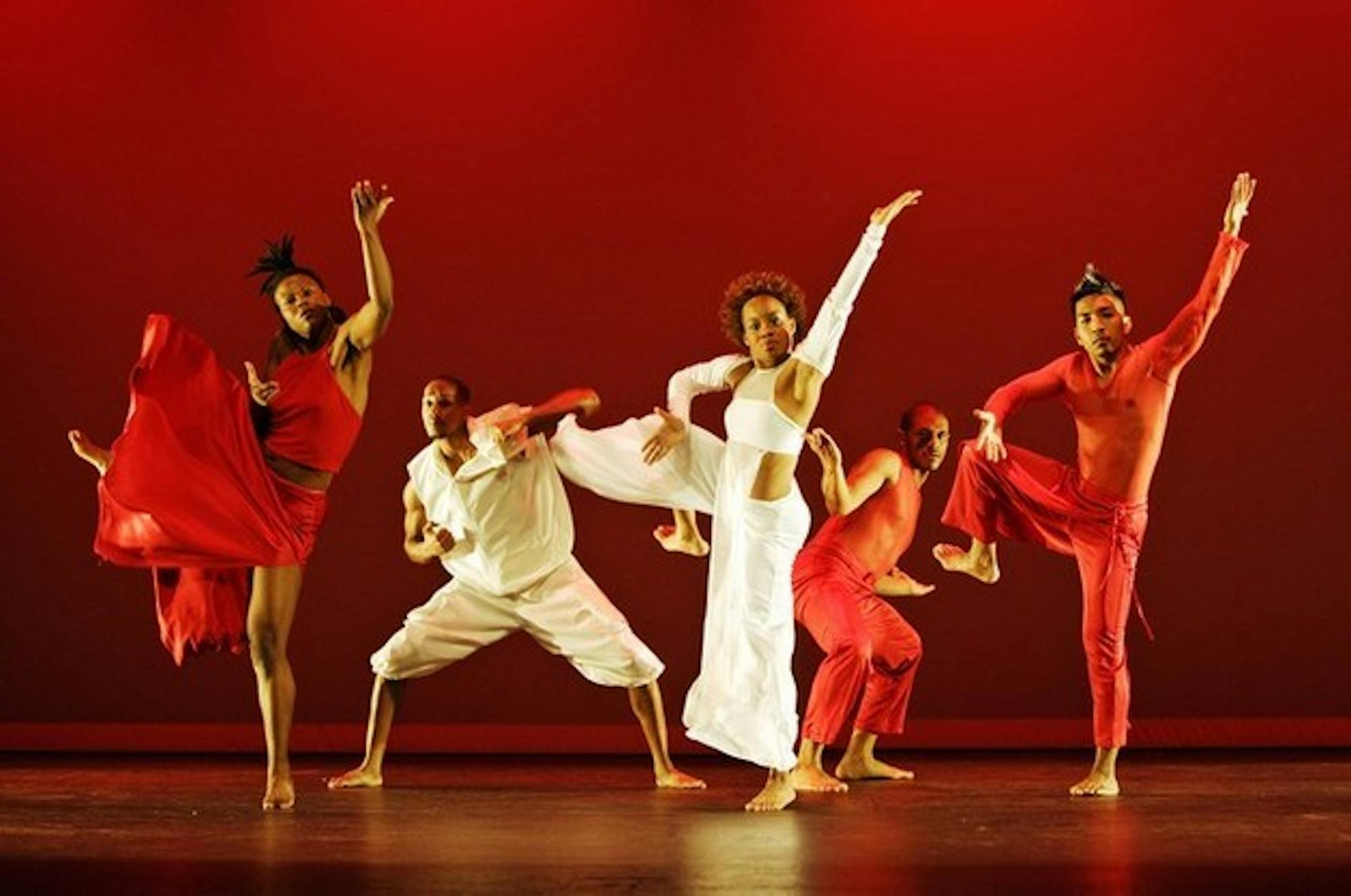When celebrated American choreographer Ronald K. Brown founded Evidence in 1985, he envisioned a company that would explore the cultural experiences and legacies of the African Diaspora through the medium of modern dance, which Brown has amplified into a language all his own. Infused with the flavors of hip-hop and ballet, Brown's style ranges from subtle to emphatic, from elegiac to exuberant. As Jennifer Dunning of The New York Times affirms, "He is an artist who never stands still: His work is full of change and exploration." Nevertheless, Brown resists "art for art's sake" by defining success according to his impact. "I am interested in sharing perspectives," he explains. "If you stir an audience, move them, inspire them, that shifts them to feel warm with each other and share a sense of community."
The Evidence Dance Company's performance repertoire features three singular yet uncannily congruent pieces, all conceived by Brown. The newest, "Order My Steps," derives its title as well as its figurative representation of life as a journey from Psalm 119. Accompanied by the words of hip-hop poet Chad Boseman and set to music that extends from Bob Marley to Terry Riley, "Order My Steps" addresses a variety of issues, including personal accountability and responsibility, through the dancers' determined yet graceful gestures.
"Walking Out the Dark" opens powerfully with an appeal spoken by Brown himself: "We must speak the truth to each other or else stay buried in the dark." Drawing its interpretation of the themes of death and rebirth from West-African traditions, "Walking Out in the Dark" follows a pattern of call-and-response to evoke motifs of mourning and catharsis. As Sarah Kaufman of The Washington Post perceives, "'Walking Out the Dark' ties together the notions of being buried by one's fears and inhibitions, and the idea of physical entombment. Breaking free is an arduous, exhausting, dirty process." The resultant tension maintains a certain vibrancy, however, as it confirms Brown's steadfast attention to the human spirit.
"Grace" assumes the program's final position. Choreographed for the Alvin Ailey American Dance Theatre in 1999, "Grace" has been hailed by The New York Times as a masterpiece of "fireball intensity ... something to be sensed as well as seen," and Brown himself likens it to "a gift from God." With a stylized journey to the promised land at its core, "Grace" erupts with metamorphic energy of limitless scope.
The power behind Ronald K. Brown's choreography stems from its capacity to respect the tide of history and to anticipate the magic of the future while remaining firmly rooted in the present. The Evidence Dance Company's upcoming performances will therefore, as Brown promises, "lift one's spirit and stir one's soul."
The Ronald K. Brown/Evidence Dance Company will perform in the Hopkin Center's Moore Theater on Thursday, Sept. 21, at 7 p.m. and on Friday, Sept. 22, at 8 p.m. A discussion with Evidence members will follow the performance.




![HONEYJOON_[Ines Gowland]_4.PNG](https://snworksceo.imgix.net/drt/7af2efc8-1bd1-4001-b754-e2718ce663b8.sized-1000x1000.PNG?w=1500&ar=16%3A9&fit=crop&crop=faces&facepad=3&auto=format)